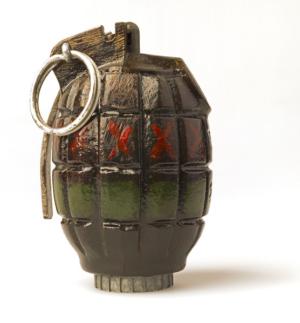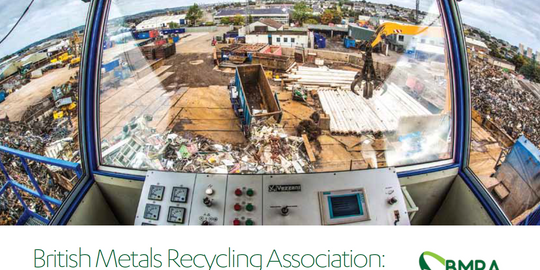Metal theft and enforcement of the Scrap Metal Dealers Act – the issue that seemingly no-one wants to own.

When the Scrap Metal Dealers Act was implemented in 2013, there was a lot of confidence across police services and local authorities and in Government. They were certain that the cash ban and enhanced ID checks would choke off outlets for stolen metal for good. Problem solved.
Recognising the likely benefits brought by the SMDA, metal recyclers welcomed the changes, never mind the cost to implement them. We only had one demand: introduce it yes, but please, please enforce it. Sadly, since the Act has been introduced, enforcement funding has been cut and cut and cut. There is now no metal theft task force, few dedicated police officers and no appetite for going after yards openly paying cash for scrap metal, especially if that metal is not known to be stolen.
Clearly, metal thefts have fallen significantly but, alongside the Act (which has proved successful in many ways) this can be linked to two reasons. Firstly, thefts were already being driven down by funded interventions such as Operation Tornado and the introduction of the Legal Aid, Sentencing and Punishment of Offenders Act 2012. Secondly, metal prices were crashing all around us.
Now, however, metal prices are on the rise and so are thefts. Problem not solved then.
In the past few weeks alone, over 8km of copper cable has been stolen directly from the ground in the North of England and Scotland. Not long ago, cable theft interrupted travel for a section of railway line near Abergavenny for three days. In the south, thieves stole bronze statues and vases from graves in Hoddesdon and Cheshunt. Churches themselves across England are constantly targeted, some repeatedly. Barely a day goes past without a theft occurring somewhere.
Thankfully, the opportunity to tackle this resurgence in metal theft is there. Whether it will be embraced, however, remains to be seen. The Home Office began a review of the Act at the end of the last year and called for responses from all interested parties. Alongside 53 other bodies, BMRA submitted a response that, in the main, called for the Act to be further strengthened by making it an offence to receive cash for scrap under primary legislation. At the same time, we repeated the plea that the Act be properly enforced, that funding be allocated not just to tackle metal theft but to actively seek out and shut illegal cash paying yards.
As part of our campaign to get the Act amended, however, it has become evident that enforcement is an issue that no-one wants responsibility for. Like a live hand grenade, responsibility is seemingly being tossed between the Home Office, local authorities and even the Environment Agency. We know there is appetite among the police to roll their sleeves up but not the funds to achieve it.
Yet, we remain convinced that those yards who are paying cash merit attention. They are more likely to: accept stolen metal; be unlicensed and unpermitted; pay less heed to environmental regulations; have scant regard to the health and safety of employees and visitors; and be less than scrupulous when it comes to tax. For just a little time and effort, so many government agencies would have a significant result on their hands.

As a trade association, we welcomed the SMDA. Following its implementation, we worked closely with stakeholders in Scotland to help shape and deliver the equivalent Scottish legislation. In fact, our part in implementing the Air Weapons and Licensing (Scotland) Act 2015 was recently recognised and rewarded by BTP Scotland.
Nevertheless, if the Act is not strengthened to make it illegal to accept cash for scrap metal and if the law is not upheld by strong enforcement, then it is worth little more than the paper it is written on. We will continue to see illegal operators openly paying cash and taking business from yards who do operate legally and, due to the high cost of this compliance, cannot compete.
After all, most people on the street will not know the law and will always go for the best price. They will not know that behind the yard walls of the illegal operators, there may be under-paid workers standing under an unsafely raised car, who are likely as not driving a screwdriver into the sump and letting the oil flow out and run down the drain. They won’t know their old car is being used to hide LPG cylinders that the yard owner won’t pay to get rid of. They certainly won’t know that the owner does not have a scrap metal dealers licence let alone the correct environmental permits.
Unfortunately, the Environment Agency can only visit permitted sites, which means it cannot go into this, unpermitted site as part of its routine work. To act against illegal yards, the EA has to seek out grant-in-aid funding.
The police services have been tasked with an ever-increasing safeguarding role and the headcount in local authorities has been vastly reduced. This means that there is no-one with the time or mandate to tackle illegal operators or even metal theft, and the SMDA has never been tested in a buoyant market. Copper, for example, is over £4,000 and that is the metal in the 8km of stolen cable.
In the face of rising prices, it is crucial that the Government takes action now, before we return to the darker days of metal theft. Moreover, given the heightened importance of secondary resources as the UK exits the European Union, surely legitimate metal recycling yards are worth protecting?


